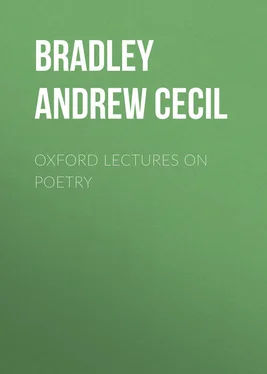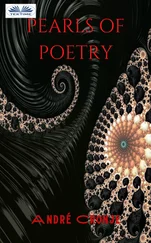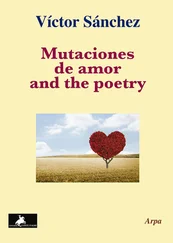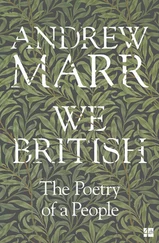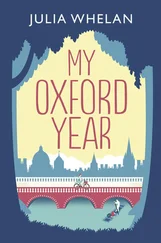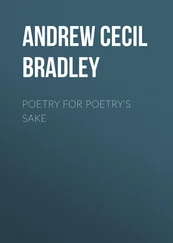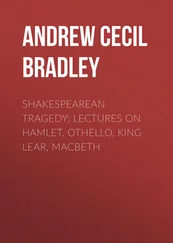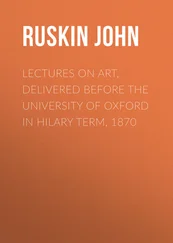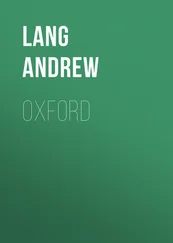Andrew Bradley - Oxford Lectures on Poetry
Здесь есть возможность читать онлайн «Andrew Bradley - Oxford Lectures on Poetry» — ознакомительный отрывок электронной книги совершенно бесплатно, а после прочтения отрывка купить полную версию. В некоторых случаях можно слушать аудио, скачать через торрент в формате fb2 и присутствует краткое содержание. ISBN: , Жанр: foreign_antique, foreign_prose, foreign_poetry, на английском языке. Описание произведения, (предисловие) а так же отзывы посетителей доступны на портале библиотеки ЛибКат.
- Название:Oxford Lectures on Poetry
- Автор:
- Жанр:
- Год:неизвестен
- ISBN:http://www.gutenberg.org/ebooks/36773
- Рейтинг книги:4 / 5. Голосов: 1
-
Избранное:Добавить в избранное
- Отзывы:
-
Ваша оценка:
- 80
- 1
- 2
- 3
- 4
- 5
Oxford Lectures on Poetry: краткое содержание, описание и аннотация
Предлагаем к чтению аннотацию, описание, краткое содержание или предисловие (зависит от того, что написал сам автор книги «Oxford Lectures on Poetry»). Если вы не нашли необходимую информацию о книге — напишите в комментариях, мы постараемся отыскать её.
Oxford Lectures on Poetry — читать онлайн ознакомительный отрывок
Ниже представлен текст книги, разбитый по страницам. Система сохранения места последней прочитанной страницы, позволяет с удобством читать онлайн бесплатно книгу «Oxford Lectures on Poetry», без необходимости каждый раз заново искать на чём Вы остановились. Поставьте закладку, и сможете в любой момент перейти на страницу, на которой закончили чтение.
Интервал:
Закладка:
To be or not to be, that is the question.
You may say that this means the same as ‘What is just now occupying my attention is the comparative disadvantages of continuing to live or putting an end to myself.’ And for practical purposes – the purpose, for example, of a coroner – it does. But as the second version altogether misrepresents the speaker at that moment of his existence, while the first does represent him, how can they for any but a practical or logical purpose be said to have the same sense? Hamlet was well able to ‘unpack his heart with words,’ but he will not unpack it with our paraphrases.
These considerations apply equally to versification. If I take the famous line which describes how the souls of the dead stood waiting by the river, imploring a passage from Charon:
Tendebantque manus ripae ulterioris amore;
and if I translate it, ‘and were stretching forth their hands in longing for the further bank,’ the charm of the original has fled. Why has it fled? Partly (but we have dealt with that) because I have substituted for five words, and those the words of Virgil, twelve words, and those my own. In some measure because I have turned into rhythmless prose a line of verse which, as mere sound, has unusual beauty. But much more because in doing so I have also changed the meaning of Virgil’s line. What that meaning is I cannot say: Virgil has said it. But I can see this much, that the translation conveys a far less vivid picture of the outstretched hands and of their remaining outstretched, and a far less poignant sense of the distance of the shore and the longing of the souls. And it does so partly because this picture and this sense are conveyed not only by the obvious meaning of the words, but through the long-drawn sound of ‘tendebantque,’ through the time occupied by the five syllables and therefore by the idea of ‘ulterioris,’ and through the identity of the long sound ‘or’ in the penultimate syllables of ‘ulterioris amore’ – all this, and much more, apprehended not in this analytical fashion, nor as added to the beauty of mere sound and to the obvious meaning, but in unity with them and so as expressive of the poetic meaning of the whole.
It is always so in fine poetry. The value of versification, when it is indissolubly fused with meaning, can hardly be exaggerated. The gift for feeling it, even more perhaps than the gift for feeling the value of style, is the specific gift for poetry, as distinguished from other arts. But versification, taken, as far as possible, all by itself, has a very different worth. Some aesthetic worth it has; how much, you may experience by reading poetry in a language of which you do not understand a syllable. 7 7 Note C.
The pleasure is quite appreciable, but it is not great; nor in actual poetic experience do you meet with it, as such, at all. For, I repeat, it is not added to the pleasure of the meaning when you read poetry that you do understand: by some mystery the music is then the music of the meaning, and the two are one. However fond of versification you might be, you would tire very soon of reading verses in Chinese; and before long of reading Virgil and Dante if you were ignorant of their languages. But take the music as it is in the poem, and there is a marvellous change. Now
It gives a very echo to the seat
Where love is throned;
or ‘carries far into your heart,’ almost like music itself, the sound
Of old, unhappy, far-off things
And battles long ago.
What then is to be said of the following sentence of the critic quoted before: ‘But when any one who knows what poetry is reads —
Our noisy years seem moments in the being
Of the eternal silence,
he sees that, quite independently of the meaning, … there is one note added to the articulate music of the world – a note that never will leave off resounding till the eternal silence itself gulfs it’ must think that the writer is deceiving himself. For I could quite understand his enthusiasm, if it were an enthusiasm for the music of the meaning; but as for the music, ‘quite independently of the meaning,’ so far as I can hear it thus (and I doubt if any one who knows English can quite do so), I find it gives some pleasure, but only a trifling pleasure. And indeed I venture to doubt whether, considered as mere sound, the words are at all exceptionally beautiful, as Virgil’s line certainly is.
When poetry answers to its idea and is purely or almost purely poetic, we find the identity of form and content; and the degree of purity attained may be tested by the degree in which we feel it hopeless to convey the effect of a poem or passage in any form but its own. Where the notion of doing so is simply ludicrous, you have quintessential poetry. But a great part even of good poetry, especially in long works, is of a mixed nature; and so we find in it no more than a partial agreement of a form and substance which remain to some extent distinct. This is so in many passages of Shakespeare (the greatest of poets when he chose, but not always a conscientious poet); passages where something was wanted for the sake of the plot, but he did not care about it or was hurried. The conception of the passage is then distinct from the execution, and neither is inspired. This is so also, I think, wherever we can truly speak of merely decorative effect. We seem to perceive that the poet had a truth or fact – philosophical, agricultural, social – distinctly before him, and then, as we say, clothed it in metrical and coloured language. Most argumentative, didactic, or satiric poems are partly of this kind; and in imaginative poems anything which is really a mere ‘conceit’ is mere decoration. We often deceive ourselves in this matter, for what we call decoration has often a new and genuinely poetic content of its own; but wherever there is mere decoration, we judge the poetry to be not wholly poetic. And so when Wordsworth inveighed against poetic diction, though he hurled his darts rather wildly, what he was rightly aiming at was a phraseology, not the living body of a new content, but the mere worn-out body of an old one. 8 8 This paragraph is criticized in Note D.
In pure poetry it is otherwise. Pure poetry is not the decoration of a preconceived and clearly defined matter: it springs from the creative impulse of a vague imaginative mass pressing for development and definition. If the poet already knew exactly what he meant to say, why should he write the poem? The poem would in fact already be written. For only its completion can reveal, even to him, exactly what he wanted. When he began and while he was at work, he did not possess his meaning; it possessed him. It was not a fully formed soul asking for a body: it was an inchoate soul in the inchoate body of perhaps two or three vague ideas and a few scattered phrases. The growing of this body into its full stature and perfect shape was the same thing as the gradual self-definition of the meaning. 9 9 Note E.
And this is the reason why such poems strike us as creations, not manufactures, and have the magical effect which mere decoration cannot produce. This is also the reason why, if we insist on asking for the meaning of such a poem, we can only be answered ‘It means itself.’
And so at last I may explain why I have troubled myself and you with what may seem an arid controversy about mere words. It is not so. These heresies which would make poetry a compound of two factors – a matter common to it with the merest prose, plus a poetic form, as the one heresy says: a poetical substance plus a negligible form, as the other says – are not only untrue, they are injurious to the dignity of poetry. In an age already inclined to shrink from those higher realms where poetry touches religion and philosophy, the formalist heresy encourages men to taste poetry as they would a fine wine, which has indeed an aesthetic value, but a small one. And then the natural man, finding an empty form, hurls into it the matter of cheap pathos, rancid sentiment, vulgar humour, bare lust, ravenous vanity – everything which, in Schiller’s phrase, 10 10 Not that to Schiller ‘form’ meant mere style and versification.
the form should extirpate, but which no mere form can extirpate. And the other heresy – which is indeed rather a practice than a creed – encourages us in the habit so dear to us of putting our own thoughts or fancies into the place of the poet’s creation. What he meant by Hamlet , or the Ode to a Nightingale , or Abt Vogler , we say, is this or that which we knew already; and so we lose what he had to tell us. But he meant what he said, and said what he meant.
Интервал:
Закладка:
Похожие книги на «Oxford Lectures on Poetry»
Представляем Вашему вниманию похожие книги на «Oxford Lectures on Poetry» списком для выбора. Мы отобрали схожую по названию и смыслу литературу в надежде предоставить читателям больше вариантов отыскать новые, интересные, ещё непрочитанные произведения.
Обсуждение, отзывы о книге «Oxford Lectures on Poetry» и просто собственные мнения читателей. Оставьте ваши комментарии, напишите, что Вы думаете о произведении, его смысле или главных героях. Укажите что конкретно понравилось, а что нет, и почему Вы так считаете.
